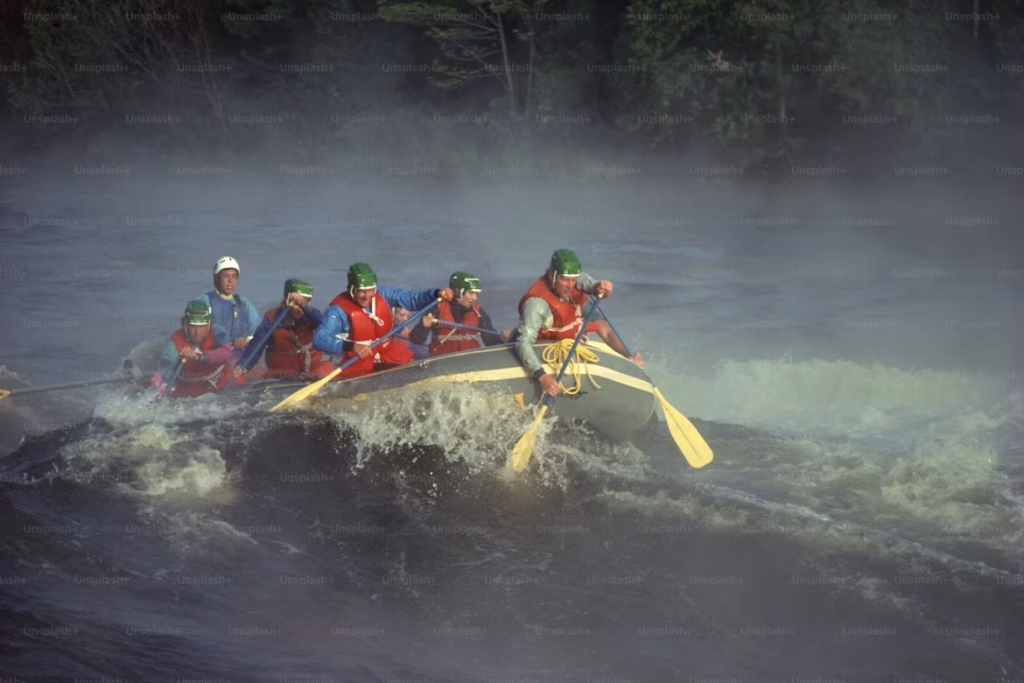Costa Rica sustainable travel has become a dream for eco-conscious adventurers worldwide. This lush Central American paradise, with its rainforests, volcanoes, and pristine beaches, draws over 3 million visitors yearly who want to explore responsibly. From hiking trails that support wildlife conservation to beach retreats that protect sea turtles, Costa Rica sustainable travel lets you connect with nature while giving back. In this guide, we’ll share 10 real stories from travelers who’ve embraced this approach, plus tips to plan your own low-impact trip. Whether you’re solo or with family, these tales show how easy it is to travel green in the “Switzerland of Central America.”
Costa Rica’s commitment to sustainability shines through its 25% protected land and 99% renewable energy use. As you read on, discover how these stories blend adventure with positive impact, inspiring your next journey.

Image: Vibrant Costa Rican rainforest trail, perfect for sustainable hikes.
Why Costa Rica Sustainable Travel Appeals to Modern Explorers
Costa Rica sustainable travel isn’t just about seeing stunning sights—it’s about experiencing them ethically. The country leads in eco-tourism, with national parks like Corcovado and Arenal offering guided tours that fund conservation. Travelers love how stays in solar-powered lodges and farm-to-table meals reduce your carbon footprint.
One key draw is the biodiversity: over 500,000 species thrive here, from sloths to colorful toucans. By choosing certified operators via the Costa Rican Tourism Institute (CST), you support local communities and protect habitats. For more on planning green getaways, check our Sustainable Adventures page.
Learn about Costa Rica’s carbon-neutral goals at the official tourism site.
Story 1: Rainforest Trekking in Corcovado – A Solo Adventure with Purpose
Ana from Spain sought solitude in Corcovado National Park, a biodiversity hotspot on the Osa Peninsula. For her Costa Rica sustainable travel experience, she joined a Bribri indigenous-led tour, where fees help patrol against poaching.
Starting at dawn, Ana hiked misty trails alive with scarlet macaws and howler monkeys. Eco-lodges of bamboo kept things low-impact, with organic meals from community farms. The highlight: Installing jaguar cameras at night, aiding research.
“This fragile paradise changed me,” Ana says. “I felt part of the protection effort.” Tip: Pack natural repellents to avoid chemicals harming wildlife.
Her story shows how Costa Rica sustainable travel turns hikes into conservation acts.
Story 2: Family Turtle Protection on Nicoya Beaches
Mike’s family from the U.S. chose Santa Teresa for Costa Rica sustainable travel focused on marine life. Volunteering with the Leatherback Trust, they patrolled beaches during olive ridley nesting season.
Mornings involved safeguarding eggs from predators, while kids learned about ocean plastics. Solar cabins and farm-fresh dinners kept things green. Releasing hatchlings at sunset was magical.
“We built family bonds and ocean awareness,” Mike shares. Pro tip: Use reef-safe sunscreen—link to our Eco-Friendly Travel: The Ultimate Guide for more.
This tale highlights family-friendly Costa Rica sustainable travel.

Image: Sea turtle hatchlings racing to the waves on a Costa Rican beach.
Story 3: Volcanic Hikes and Hot Springs in Arenal
Lila from Canada craved adventure in Arenal Volcano National Park. Her Costa Rica sustainable travel pick: A women-run cooperative tour with reforestation activities.
Treks revealed regenerating lava fields with sloths and orchids. Geothermal soaks used natural heat, and planting native trees added impact. “The views were epic, but contributing to recovery was rewarding,” Lila notes.
Advice: Opt for electric shuttles to match Costa Rica’s renewable energy vibe.
Arenal embodies thrilling yet responsible Costa Rica sustainable travel.
Story 4: Cultural Homestay in Talamanca Reserves
Javier from Mexico immersed in Talamanca’s indigenous communities for authentic Costa Rica sustainable travel. Staying with Cabécar families, he learned weaving and cacao farming via fair-trade platforms.
Micro-hydro cabins and wild-fruit meals supported remote education. Evening rituals shared land stewardship stories. “Exchange over extraction,” Javier says.
Tip: Verify hosts through the International Ecotourism Society for ethical stays.
This cultural dive enriches Costa Rica sustainable travel.
Story 5: Cloud Forest Birdwatching in Monteverde
Sarah from the UK explored Monteverde’s hanging bridges for Costa Rica sustainable travel. A biologist-guided night tour protected 500+ bird species, including quetzals.
Rainwater-harvested lodges and compost systems minimized waste. Logging sightings aided climate research. “The forest’s life force connected me deeply,” Sarah reflects.
Travel off-peak to ease crowds—a smart Costa Rica sustainable travel move.

Image: Hanging bridges in Monteverde’s misty cloud forest.
Story 6: Eco-Surfing Lessons in Tamarindo
Elena from Australia surfed Tamarindo responsibly, joining a camp that cleans beaches and plants mangroves for Costa Rica sustainable travel.
Recycled boards and plastic talks followed waves. Glamping with zero-waste kitchens was comfy. “Empowering waves with purpose,” Elena says.
Support Blue Flag beaches for clean shores in your Costa Rica sustainable travel.
Story 7: Botanical Gardens and Permaculture in La Fortuna
Tom from Germany delved into La Fortuna’s gardens via a permaculture farm stay—pure Costa Rica sustainable travel. He harvested herbs and visited butterfly sanctuaries.
Shade-grown cacao workshops funded corridors. “Sustainability in every bite,” Tom shares.
Buy fair-trade for farmer support in Costa Rica sustainable travel.
Story 8: White-Water Rafting on the Pacuare River
Rosa from Brazil rafted Pacuare’s rapids with a cleanup-focused outfitter, blending thrill and eco-care in Costa Rica sustainable travel.
Canyons teemed with toucans; biodegradable camps and school visits followed. “Purposeful adrenaline,” Rosa enthuses.
Choose green operators for safe, impactful Costa Rica sustainable travel.

Image: Rafting through Costa Rica’s scenic Pacuare River gorges.
Story 9: Yoga and Wellness Retreats in Nosara
Priya from India found peace in Nosara’s solar-powered retreats for mindful Costa Rica sustainable travel. Sunrise yoga led to beach cleanups and garden-fresh vegan meals.
“This healed body and earth,” Priya says. Seek GSTC-certified spots.
Nosara offers restorative Costa Rica sustainable travel.
Story 10: Canal Paddling in Tortuguero National Park
Carlos from Argentina canoed Tortuguero’s waterways, spotting manatees in car-free bliss—ideal Costa Rica sustainable travel. Jungle lodges aided jaguar monitoring.
Non-motorized tours preserved quiet; local stories added depth. “Preservation through presence,” Carlos reflects.
Use shuttles to access this wetland gem for Costa Rica sustainable travel.

Image: Peaceful canoeing in Tortuguero’s mangrove canals.
15 Practical Tips for Your Costa Rica Sustainable Travel Adventure
To make your trip as green as possible, follow these tips drawn from our storytellers:
- Book CST-certified tours for verified sustainability.
- Use reusable water bottles—tap water is safe in most areas.
- Choose solar or eco-lodges over large resorts.
- Support local sodas for authentic, low-waste meals.
- Pack reef-safe sunscreen to protect marine life.
- Travel off-peak (May-Nov) to avoid crowds.
- Offset flights via local reforestation programs.
- Learn basic Spanish to connect with communities.
- Avoid single-use plastics—bring cloth bags.
- Hike with guides who share conservation knowledge.
- Volunteer for a day, like turtle patrols.
- Buy fair-trade coffee and chocolate.
- Use public buses or shuttles instead of rentals.
- Respect wildlife—observe from afar.
- Leave no trace: Pack out all waste.
These steps ensure your Costa Rica sustainable travel leaves a positive mark.
Frequently Asked Questions About Costa Rica Sustainable Travel
What is the best time for Costa Rica sustainable travel?
The dry season (Dec-Apr) offers great weather, but green season (May-Nov) sees fewer crowds and supports eco-initiatives like turtle nesting. Shoulder months balance both.
How can I find eco-friendly accommodations for Costa Rica sustainable travel?
Look for CST-rated lodges on sites like Booking.com or Visit Costa Rica. Options range from glamping to indigenous homestays, all emphasizing low impact.
Is Costa Rica sustainable travel budget-friendly?
Yes! Community tours start at $50/day, including meals. Save by using public transport and eating local—sustainable choices often cost less long-term.
What should I pack for Costa Rica sustainable travel?
Essentials: Quick-dry clothes, sturdy hiking shoes, reusable gear, and natural bug spray. Light layers suit varied climates from beaches to mountains.
Conclusion: Embrace Costa Rica Sustainable Travel for Lasting Impact
These 10 stories prove Costa Rica sustainable travel blends unforgettable adventures with real-world good—from rainforest guardians to yoga retreats. By choosing ethical paths, you protect biodiversity, empower locals, and create meaningful memories. Ready to plan your green escape? Start with a CST tour and share your story. Visit bongnest.com for more inspiration, and book soon—Costa Rica awaits your responsible footsteps!


